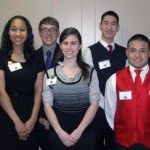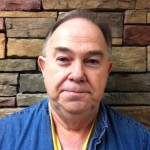Jerry Cornfield, HeraldNet
As lawmakers near the midpoint of the session, they are showing little hurry to surround and tackle the elephant in the Capitol — education funding.
They talk all the time about the state Supreme Court decision last year scolding them for not fully funding a basic education for public school students as promised in Washington’s Constitution.
They just have not figured out what they want to do about it.
Some of the foot-dragging can be blamed on the court giving lawmakers a couple of bienniums to get right with the Constitution.
Mostly, Democrat and Republican lawmakers have been waiting for those same Supreme Court justices to rule on a lawsuit that claims the voter-approved law requiring taxes be approved by a two-thirds supermajority is not legal.
Thursday, the court will issue its much-anticipated ruling in that case.
When it gets out, life in the Capitol will begin to get interesting, with education funding conversations heating up in hallways, hearing rooms and the House and Senate chambers.
Democrats view the best way to comply with the court and funnel more money into schools is by extending some taxes, levying new ones or both. Republicans are blockading such moves and are intent on keeping their bulwark in place.
If justices tear down the two-thirds bar, gleeful Democrats will be able to push through tax bills with a simple majority. They have the numbers to do so in the House today and might be able to pull it off in limited fashion in the Senate by the end of session.
But if the bar is kept in place, Republicans can continue to repel Democrats in the Senate where they control the majority. And it’s unlikely a tax increase could escape the House on a two-thirds vote without some serious deal-making.
While many lawmakers seem vexed by the politics of that revenue pursuit, Rep. Ruth Kagi, D-Seattle, isn’t one of them.
She’s laying claim to a different stream of green — money from future marijuana sales — to expand early learning programs for 3- and 4-year-olds of low-income families.
“We’ve been saying early learning is the best investment but we didn’t have the money,” she said. “That was my purpose with this, to get out there first and make a logical connection with what we’re doing for early learning and this money.
Kagi’s crafted a bill to snag pot dollars from the general fund — an estimated $182 million annually — to increase the number of slots in child care and prekindergarten programs for those children.
It unites several early learning programs into a single system called Early Start. These include Working Connections Child Care, Early Care and Education Assistance Programs, Home Visiting and Parent Education and Early Achievers.
Her bill, which has garnered support from a few Republicans, should pass out of the House budget committee this week.
Of course, there may not be money if the federal government tries to stymie Washington’s voter-backed legal marijuana industry. That’s beyond Kagi’s control.
She’s simply high on the idea of getting thousands more children into early learning programs she knows will pay future dividends for them and society. Even law enforcement is behind this strategy, she said.
“They’re trying to prevent crime. I’m trying to prevent school failure,” she said. “If you invest in early learning you can accomplish both.”













